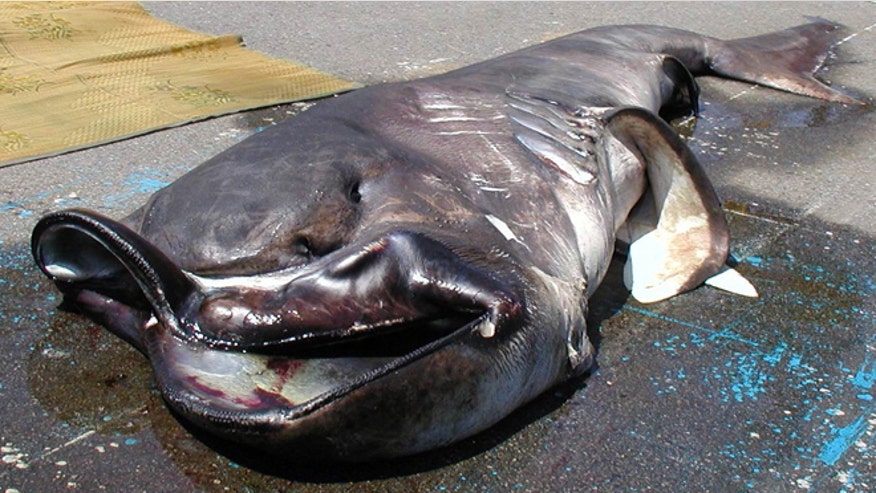 FILE: Fishermen off the coast of japan pulled in a rare megamouth shark, similar to the one pictured, marking only the 58th time one was encountered by humans, Japanese news outlets reported.Reuters
FILE: Fishermen off the coast of japan pulled in a rare megamouth shark, similar to the one pictured, marking only the 58th time one was encountered by humans, Japanese news outlets reported.ReutersFishermen off the coast of Japan hauled in a rare megamouth shark recently, marking the 58th time in history one of its kind were seen or caught by man, Japanese news outlets reported.
The Japan Daily Press reported Thursday that scientists performed an autopsy on the 1,500-pound female shark in front of onlookers at the Marine Science Museum in Shizuoka City. The shark was reportedly caught from a depth of about 2,600 feet. It's unclear precisely when it was nabbed, according to the report.
The first megamouth was discovered in Hawaii in 1976, prompting scientists to create an entirely new family and genus of sharks. The megamouths are docile filter-feeders with wide, blubbery mouths.
RARE GOBLIN SHARK CAUGHT OFF KEY WEST
Others megamouths — considered one of the rarest fish in the world — have been encountered in California, Japan, Taiwan, Indonesia, Brazil, Ecuador, Senegal, South Africa, Mexico and Australia. It's known to inhabit the Indian, Pacific and Atlantic oceans, according to the Florida Museum of Natural History.
"As with the two other filter-feeding sharks, the basking and whale sharks, this species is wide-ranging," according to a profile of the animal on the museum's website. "However, the megamouth is considered to be less active and a poorer swimmer than the basking or whale sharks."
The megamouth primarily feeds on large quantities of krill and its maximum size is at least 17 feet long. The sperm whale is its only known predator, researchers say.
In 2009, fishermen in the Philippines accidentally caught and later ate a megamouth shark. The 1,100-pound, 13-foot megamouth died while struggling in the fishermen's net off Burias island in the central Philippines. It was taken to nearby Donsol in Sorsogon province, where it was butchered and eaten.
The Associated Press contributed to this report.